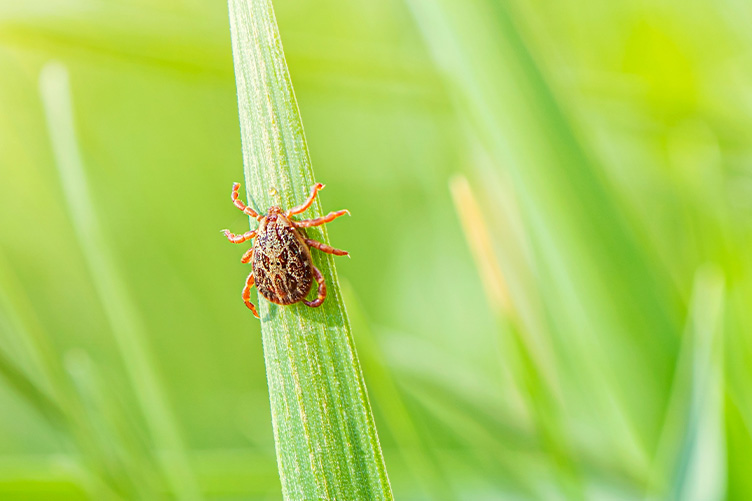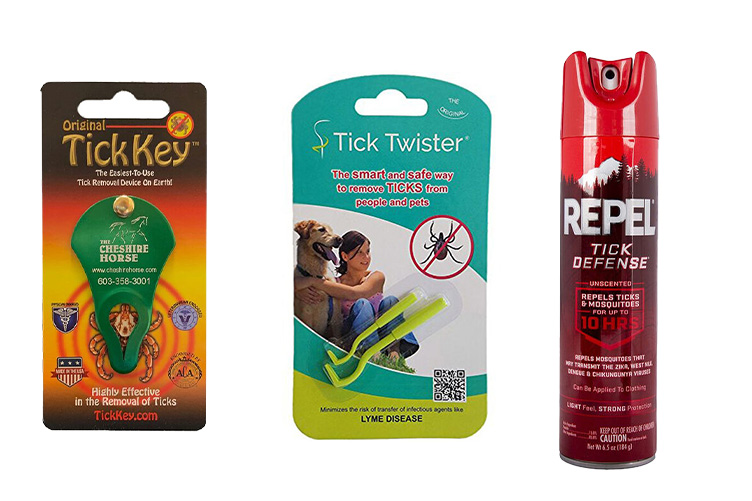 An important responsibility that comes with horse ownership involves safeguarding them from the silent threats lurking in fields and forests: ticks. These tiny hitchhikers can transmit a range of nasty diseases, leaving your equine friend feeling under the weather and, in some cases, causing serious health complications.
An important responsibility that comes with horse ownership involves safeguarding them from the silent threats lurking in fields and forests: ticks. These tiny hitchhikers can transmit a range of nasty diseases, leaving your equine friend feeling under the weather and, in some cases, causing serious health complications.
The Ticking Time Bomb: Common Equine Tick-Borne Illnesses
While several tick-borne illnesses can affect horses, three main culprits deserve our attention:
Anaplasmosis
How is it transmitted?
This bacterial infection, transmitted by deer ticks, is the most common tick-borne disease in horses.
What are the symptoms?
- Fever
- Lethargy
- Loss of appetite
- Weakness
- Left untreated, anaplasmosis can lead to organ damage and even death.
Lyme Disease
How is it transmitted?
Caused by the bacterium Borrelia burgdorferi, Lyme disease in horses is less common than anaplasmosis but can still be debilitating.
What are the symptoms?
- Lameness
- Stiffness
- Joint swelling
- Neurological problems
- Early diagnosis and treatment are crucial for preventing long-term complications. Learn more about Lyme Disease in horses.
Equine Piroplasmosis
How is it transmitted?
This parasitic disease, caused by Babesia caballi or Theileria equi, affects red blood cells.
What are the symptoms?
- Fever
- Anemia
- Jaundice
- Weakness
- In severe cases, equine piroplasmosis can be fatal.
Recognizing the Enemy

Early detection is key to managing tick-borne illnesses effectively. Here’s what you can do.
- Regular tick checks: Thoroughly examine your horse for ticks, especially in areas like the head, neck, belly, and legs. Pay attention to warm, moist areas where ticks like to hide.
- Monitor your horse’s health for common symptoms: Be alert for any changes in your horse’s behavior, appetite, or energy levels. Fever, lameness, and swelling are common signs of tick-borne illnesses.
- Know your risk: Certain geographical regions have higher rates of tick-borne diseases. Consult your veterinarian to understand the risks in your area and implement appropriate preventive measures.
What Should I Do if I Find a Tick on My Horse?
If you find a tick on your horse, avoid employing common but ineffective folk methods to remove ticks, such as using petroleum jelly, fingernail polish, 70 percent isopropyl alcohol, or a hot kitchen match. Despite their belief to induce detachment, these methods actually stimulate ticks to secrete more saliva, leading to an increased risk of disease transmission. For this reason, it is best to avoid these methods.
Instead, the best method to remove a tick from a horse is to utilize blunt curved forceps or a commercial tick-extraction tool, like The Cheshire Horse Tick Key or the H3D Tick Twister to grasp the tick as close to the skin surface as possible. Pull upward with steady pressure, avoiding squeezing or crushing, and refrain from handling ticks with bare hands due to potential disease transmission. Thoroughly cleanse the bite site with soap and water after removal for optimal safety.
Another method of tick removal is spraying the tick with an aerosol repellent containing pyrethrins or pyrethroid, such as the Repel Tick & Mosquito Defense Insect Repellent, and then spraying again within one minute. The tick should fall off after treatment.

After removal, consider having the tick identified and tested for potential diseases. According to the American Association of Equine Practitioners, “To submit a tick for identification, place the tick in a container of alcohol (optimally 70 percent ethanol or 70 percent isopropyl) and send the specimen to a State, Federal, or University veterinary diagnostic laboratory with capabilities for tick identification.”
Prevention Strategies
Prevention is always better than a cure, and luckily, several strategies can help safeguard your horse from tick-borne illnesses.

- Tick control products: Consult your veterinarian about using tick control products like insecticides or repellents, such as Wondercide Flea & Tick Spray for Pets & Home with Natural Essential Oils. These can be applied topically. Oral supplements, such as AniMed BugLyte Feed-Through Bug Prevention, may also deter ticks from latching onto your horse.
- Barrier products: The American Veterinary Medicine Association suggests, “Consider the use of insect nets designed to be worn over horses’ eyes and ears to minimize insect bites, but do not consider them 100% effective. If you use these products, you should still check your horses regularly for ticks.” The Professional’s Choice Comfort Fit Lycra Fly Mask and the WeatherBeeta Deluxe Stretch Bug Eye Saver with Ears are both popular for this use.

- Habitat management: Clear brush and tall grass around your horse’s paddock to reduce tick habitat. “Place a 3-ft wide barrier of wood chips or gravel between lawns and wooded areas to restrict tick migration into recreational areas,” explains the Centers for Disease Control and Prevention.
- Vaccinations: Vaccines are available for some tick-borne diseases, like anaplasmosis. Discuss vaccination options with your veterinarian.
A Partner in Health: Working with Your Veterinarian
If you suspect your horse has a tick-borne illness, promptly consult your veterinarian. They will perform diagnostic tests and recommend appropriate treatment based on the specific disease. Early diagnosis and treatment can significantly improve your horse’s prognosis and prevent long-term complications.
Remember: Tick-borne illnesses in horses are a serious concern, but with proper knowledge, vigilance, and preventive measures, you can protect your equine friends and ensure they enjoy a healthy, happy life. So, saddle up, arm yourself with information, and tick the box on protecting your precious partner from ticks!
